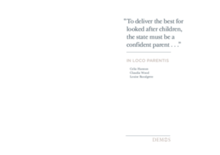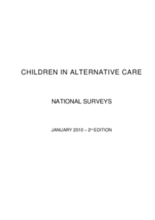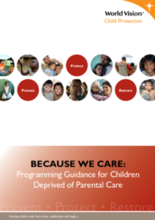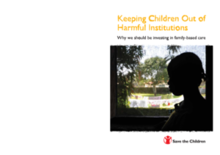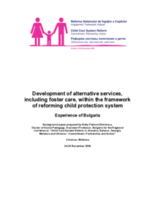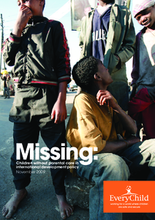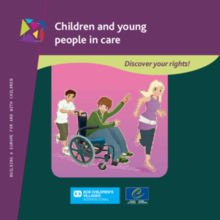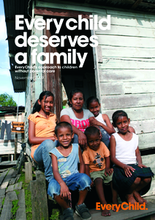Displaying 2061 - 2070 of 2223
This book features individual empirical studies on the outcomes and progress made for children in foster care around the world.
This report by the UK-based independent think tank, Demos, considers what the UK care system would look like if it were reconfigured to avoid the delay, instability, and abrupt transitions many young people experience. It demonstrates how this type of system could also be less costly to the states in both the short and long term.
In 2009 Eurochild carried out a survey of the situation of children in alternative care in Europe through its member organisations. The survey was not intended as a scientifically rigorous research exercise but rather to identify what information is readily available and to note some common trends across Europe.
Provides recommendations for World Vision and partner agencies on general alternative care principles and analysis of alternative care models.
Examines the latest evidence of the harm institutional care can cause to children. It explores why governments and donors continue to prioritize institutional care, despite the harm it can cause.
The following is a summary of the Bulgarian experience in implementing a comprehensive reform of the care and protection system for children at-risk.
Explores the negative impacts of loss of parental care on children. Advocates for reform for children based on assertion that failure to keep children in families, out of residential institutions and off the streets, will be another barrier to the achievement of the Millennium Development Goals
This booklet is designed for children and young people in care to explain how alternative care works, what their rights are as young people in care and whether these rights are being respected.
This document outlines EveryChild’s approach to the growing problem of children without parental care by defining key concepts, analysing the nature and extent of the problem, exploring factors which place children at risk of losing parental care, and examining the impact of a loss of parental care on children’s rights.
Collection of abstracts from conference presentations

